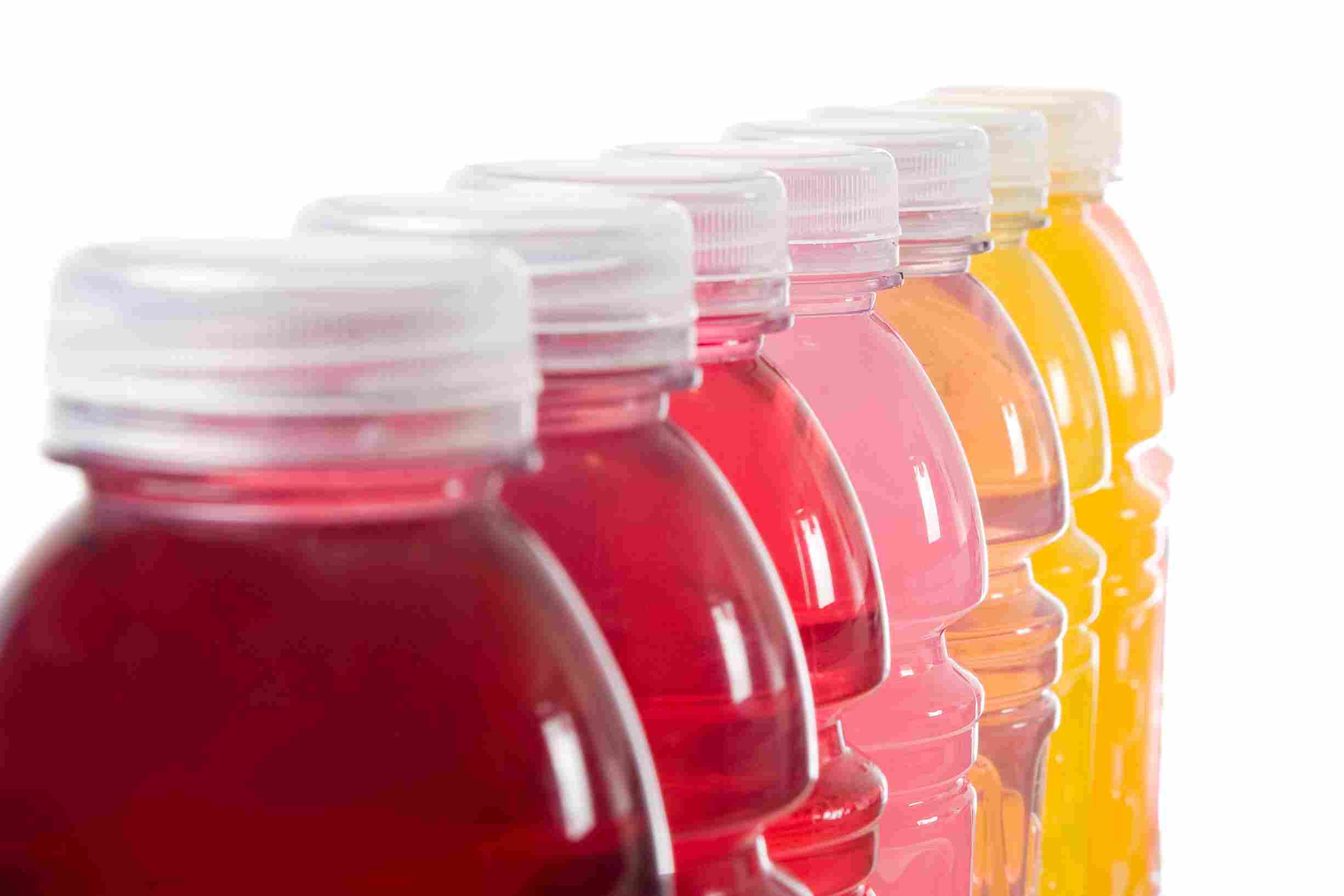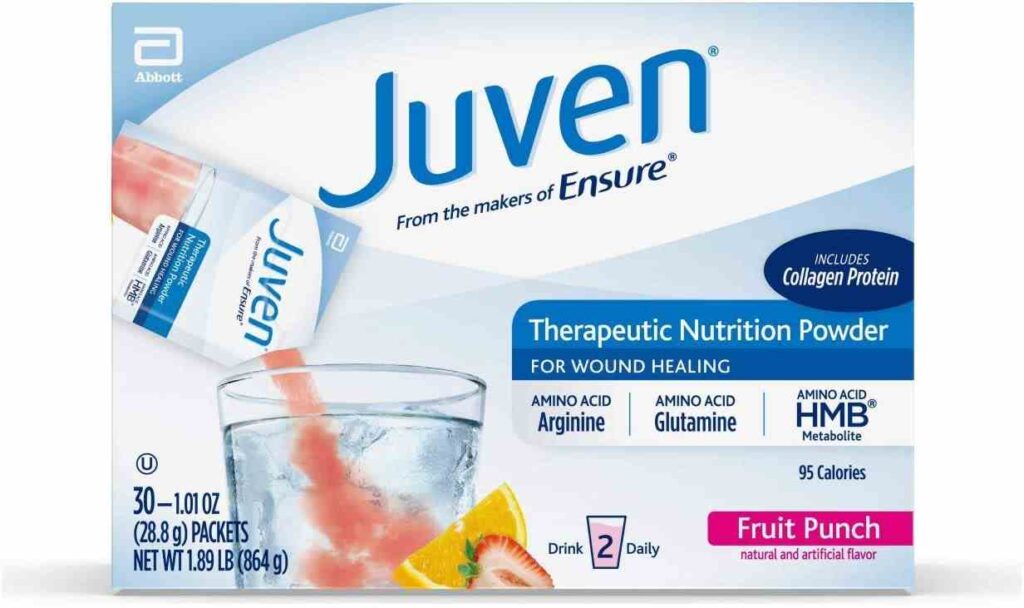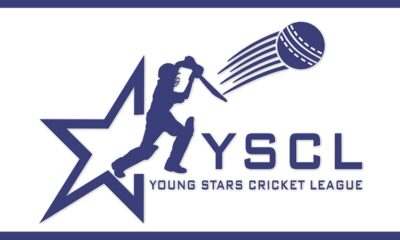Sports Drink
Will Electrolyte Drinks Lose Their Potency If I Mix Them The Night Before The Event?

Whether you drink bottled or tap water, trace levels of electrolytes including sodium, potassium, magnesium, and calcium are almost always present.
Electrolyte concentrations in drinks, on the other hand, might vary substantially. Some firms add a substantial quantity of minerals and carbohydrates to their water and sell it as a sports drink, while others merely add a little bit for flavor.
The possible benefits of electrolyte-enhanced water are discussed in this article, as well as frequent misconceptions about it.
What Is Electrolyte Water and How Does It Work?

Electrolytes are minerals that, when dissolved in water, carry electricity.
They’re dispersed throughout your body’s fluids and use electrical energy to help with vital physical activities.
Electrolytes are required for the following functions:
- Keeping your fluid balance in check.
- Keeping your blood pressure in check.
- assisting the contraction of your muscles, particularly your heart.
- Keeping your blood acidity at a healthy level (pH).
- Sodium, chloride, potassium, magnesium, and calcium are common electrolytes.
These charged minerals are added to electrolyte fluids, although the concentrations vary.
Regular bottled water contains at least a modest quantity of electrolytes unless it’s labeled “distilled,” and many products incorporate trace quantities for flavor.
Electrolytes can also be found in tap water. On average, 34 ounces (1 liter) of tap water has 2–3% of the RDI for sodium, calcium, and magnesium, but little to no potassium (3).
Popular electrolyte-enhanced sports beverages, on the other hand, include up to 18% of the RDI for sodium and 3% of the RDI for potassium, but little to no magnesium or calcium.
Electrolyte water contains minerals that your body needs for proper operation, such as sodium, potassium, magnesium, and chloride.
While electrolyte-enhanced beverages aren’t required to consume all of the time, they can be helpful during lengthy activity, in hot surroundings, or if you’re sick with vomiting or diarrhea.
Because sports drinks and other electrolyte waters may be costly, you might want to explore making your own. These are not only inexpensive to produce, but they also deliver electrolytes without the use of artificial colors or tastes.
Sports Drink
Moment Drink: Net Worth, Valuation Ingredients & Where To Buy Explored!
Moment Drink was established by a husband and wife duo – Faheem Kajee and Aisha Chottani, who, with their numerous years of experience in high-powered positions as management consultants, are more than qualified to run their own business.
While Aisha graduated from Harvard Business School and is an expert in logistics, Faheem has founded start-ups with companies like Google and has also worked for a few venture capitalist firms.
In this post you will learn about Moment Drink: Net Worth, Valuation Ingredients & Where To Buy Explored!. Follow sportsbugz.com For More Updates About Sportsperson & Athletes.
Moment Drink: Net Worth, Valuation Ingredients & Where To Buy Explored!
Moment Drink is a non-carbonated beverage that is manufactured using a unique formulation that combines natural components (adaptogens) that have been “proved to improve alpha brainwaves and reduce stress,” similar to meditation.

Hibiscus Dragon Fruit, Tulsi Lemon, and Rooibos Blood Orange are the three varieties available at the present. At a glance, a drink that helps you feel calm, as after meditating or taking a hot bath.
Moment Drink Net Worth & Valuation
The estimated Net Worth of Moment Drink is around $2 Million on the Shark Tank. However, it has received no deal yet.
Faheem Kajee and Aleesha Chottani. On Shark Tank, he asked for $200,000 for 10% of a $2 million value.
Moment Drink Ingredients
The Ingredients of Moment Drink include the following elements and substances:
- L-theanine occurring s naturally in green tea that contain nootropics that increase alpha brainwaves.
- Ashwagandha, an ancient root used in Ayurveda, an adaptogen sourced in India
- Fruit flavors: Dragon Fruit, Blood Orange, and Lemon
- Teas: Hibiscus, Tulsi/Holy Basil, and Rooibos
- Herbs: Thyme, Cardamom, and Cinnamon
- Natural sweeteners: Stevia, Monk Fruit, and Erythritol
- Organic apple cider vinegar
- Moment is non-GMO, non-carbonated, caffeine-free, fat-free, sugar-free, Keto-friendly. And for an extra-added attraction, it has 9-15 calories!
Aisha and Faheem would want you to take a moment the next time you’re feeling frazzled.
The Moment was named to the coveted Amazon Launchpad Program and won the BevNET New Beverage Showdown 2020, the beverage industry’s most prestigious honor.
Aisha and Faheem contribute a percentage of their profits to educational projects that encourage youngsters to practice mindfulness.
Also Read: Prime Drink: Prime Sports Drink, Company, Price, Net Worth & Value
Where To Buy Moment Drink
The Moment Drink is listed on Amazon as “Moment Botanical Water STILL – Variety pack Healthy & Natural: Hibiscus, Blood Orange, Lemon. L-Theanine and Ashwagandha for Zen & Stress Relief. No Caffeine or Added Sugar. Keto. 6 Cans” But it’s Currently Unavailable.

Amazon describes the Moment Drink as:
- DON’T EAT SUGAR OR ARTIFICIAL SWEETENERS IF YOU WANT TO BE HEALTHY: There is no added sugar. There are no artificial sweeteners in this recipe. It’s keto-friendly. There is no caffeine and no artificial ingredients in this product. Calorie count is low. Non-GMO. There are no preservatives in this dish.
- ADD ADAPTOGENS AND NOOTROPICS TO YOUR DIET TO INCREASE MENTAL CLARITY: Ancient adaptogens like Ashwagandha and L-Theanine (green tea extract) increase brain function, reduce cortisol levels, aid battle stress and anxiety, and improve concentration and attention in our patented formulation.
- STILL A CALM MIND BEVERAGE: Non-carbonated and sugar-free, it gives you the mental clarity you need to perform at your best. Allow yourself to feel alpha brain waves, which are similar to the ones you get when you meditate.
- INGREDIENTS THAT ARE GOOD FOR YOU: Natural fruit (Blood Orange, Dragon Fruit, Lemon), teas (Hibiscus, Tulsi/Holy Basil, Rooibos), herbs (Thyme, Cardamom, Cinnamon), and other components burst with fresh tastes.
Aisha and Faheem looked into hundreds of components from all around the world, many of which came from their multicultural backgrounds, all of which were backed up by scientific evidence and all of which were extremely nutritious. In their kitchen, they prepared thousands of trial batches.
Moment, a patented mix of natural ingredients that increases alpha brainwaves and reduces stress, met their criteria for being healthy, nutritional, and delicious.
Consider how you feel after a quick walk or a few deep cleansing breaths: relaxed but energized. Moment takes care of all of that for you. Faheem is the CEO and Aisha is the CFO of Moment, LLC, which they created together.
Sports Drink
Can Juven Be Used As A Sports Drink?

Juven is a medical food made by Abbott Laboratories that is used to offer nutritional support under the supervision of a physician in people who have muscular wasting due to AIDS or cancer, to enhance wound healing after surgery or injury, or when a medical practitioner recommends it.
Can Juven be used as a sports drink?
No, it can’t be taken as a sports drink. Your doctor will advise you on how much medicine you should take. Do not exceed the recommended dosage.

This drug should be taken with meals or milk.
If you are using this drug without a prescription, follow the directions on the medicine label.
Allow the tablet, extended-release tablet, capsule, or liquid-filled capsule to dissolve completely in your mouth. It should not be broken, chewed, or crushed.
Before swallowing the chewable pill, chew it completely.
Use a marked measuring spoon, oral syringe, or medication cup to measure the oral liquid medicine.
Use a marked measuring spoon, oral syringe, or medication cup to measure the oral liquid medicine.
If you are using this drug without a prescription, follow the directions on the medicine label.
Allow the tablet, extended-release tablet, capsule, or liquid-filled capsule to dissolve completely in your mouth. It should not be broken, chewed, or crushed.
Your doctor will advise you on how much medicine you should take. Do not exceed the recommended dosage.
This drug should be taken with meals or milk.
Before swallowing the chewable pill, chew it completely.
Note: If you’ve had an adverse response to any of the chemicals in this drug, you shouldn’t use it. If you have any questions about the ingredients, see your doctor or pharmacist. If you are under the age of 18, do not use this medication.
Sports Drink
Why is it legal to put 47 grams of sugar into one serving of nutriment sports drink?

Sports beverages claim to restore glucose, fluids, and electrolytes (sodium, potassium, magnesium, calcium) lost during severe activity while also increasing endurance. Some products also include B vitamins, which are linked to enhanced energy (not to be confused with energy drinks, which are a different product entirely).
Sports drinks either include sugar (glucose, high-fructose corn syrup, sucrose) or do not contain sugar and are instead flavored with low-calorie sweeteners. Sports drinks include a specified quantity of sugar and electrolytes to enable rapid hydration and absorption.
Why is it legal to put 47 grams of sugar into one serving of nutriment sports drink?
Sports drinks account for roughly 26% of overall sugar-sweetened beverage consumption among teenagers, according to estimates. Sports drinks have less sugar than soda and energy drinks, but they still include simple sugars in them.
A 12-ounce cola drink, for example, includes around 39 grams of sugar, compared to 21 grams in a popular sports drink, according to nutritional analysis. Drinking too much of them, especially if you aren’t exercising vigorously, might raise your chance of being overweight or obese, as well as other health issues including type 2 diabetes, cardiovascular disease, and gout. Dental caries is also a possibility.
While skipping the soda and opting for popular sports drinks may appear to be a healthier option, most sports drinks are only slightly less sugary and calorie-dense than soda. A 32-ounce sports drink includes between 56 and 76 grams of sugar, or 14 to 19 teaspoons, which is four to six times the daily amount suggested for children and teens.
“They have less sugar than soda, but it’s still a big quantity,” says Vanessa Curtis, MD, a pediatric endocrinologist and head of the University of Iowa Stead Family Children’s Hospital’s pediatric cardio-metabolic clinic. “Most sports beverages have around two-thirds the sugar content of soda.”
A non-diet Coke with the same quantity of sugar includes 104 to 124 grams of sugar or 26 to 31 teaspoons.
According to research published in May 2018 in the American Academy of Pediatrics, the number of teenagers opting for sugary sports drinks on a weekly basis is increasing, and much more so on a daily basis for youngsters who watch more than two hours of TV each day (AAP). Every week, about 60% of high school kids consume at least one sports drink.
The extra electrolytes in these sports drinks, according to Dr. Curtis, aren’t required for children.
“If kids are consuming a balanced diet, they don’t really need the extra electrolytes,” she explains. “The beverages are OK if they’re running a marathon, but what about a single baseball game or a dancing recital?” They aren’t required.”
“Electrolyte- and carbohydrate-containing soft beverages, typically flavored and sugar-sweetened, claimed to restore energy and fluids after vigorous activity,” according to the AAP report. The beverages are beneficial for top athletes who engage in continuous intense activity, but “prepubescent adolescents do not lose electrolytes at the same pace as adult athletes,” according to the authors.
They also add unneeded calories, which can lead to – or contribute to – obesity and diabetes, according to Curtis.
“We don’t want to give them more calories,” Curtis adds, “particularly since one out of every six kids in Iowa is fat.”
According to her, serving size also plays a deceiving function in sports drink intake.
“A serving size of a sports drink is 8 ounces if you read the package,” Curtis adds, “but the bottles most kids are drinking are 20- or 32-ounce bottles, which are three to four servings at once.”
She claims that the greatest option at the ballpark or soccer field is just water.
“For most activities, water should be the primary choice for rehydration,” she stated. “That’s all they require.”

 Sportsperson3 years ago
Sportsperson3 years agoJimmy Hayes: Cause Of Death, Autopsy, Wife, Family, Net Worth

 Jockey3 years ago
Jockey3 years agoMeet Jamie Kah Ben Melham Relationship, Partner, Husband, Wife, More

 Top-Stories3 years ago
Top-Stories3 years agoHow Did Shawn Rhoden Die? Cause Of Death & What Happened

 YSCL3 years ago
YSCL3 years agoYSCL India 2021: Auction, Registration Form, Selection List & Benefits

 Football3 years ago
Football3 years agoErling Haaland Religion: Father, Net Worth, Salary, Bio

 Sportsperson3 years ago
Sportsperson3 years agoBrandon Short: Net Worth, Career, Earnings, Wife, Daughter

 PKL3 years ago
PKL3 years agoPro Kabaddi 2021 Vivo PKL Date, Venue, Team Players, Schedule

 Sports Drink3 years ago
Sports Drink3 years agoPrime Drink Net Worth 2023, Revenue Company, Price & Value
